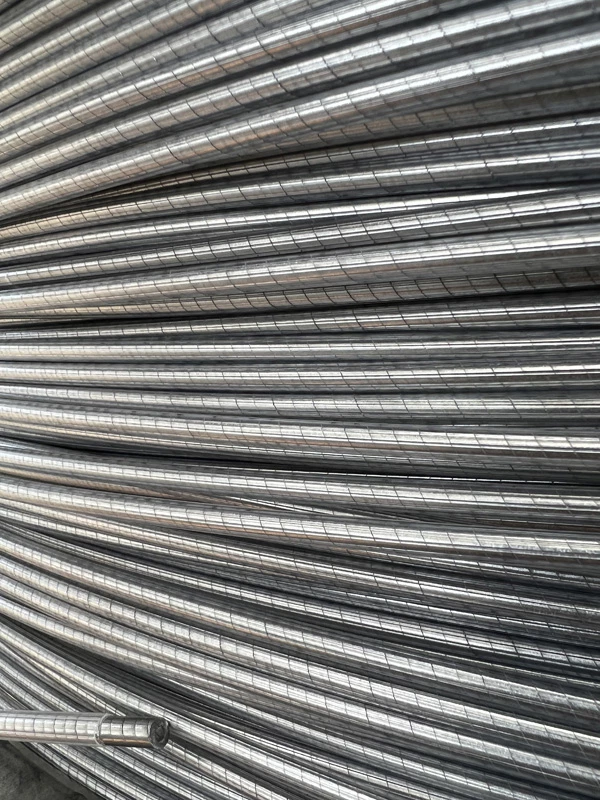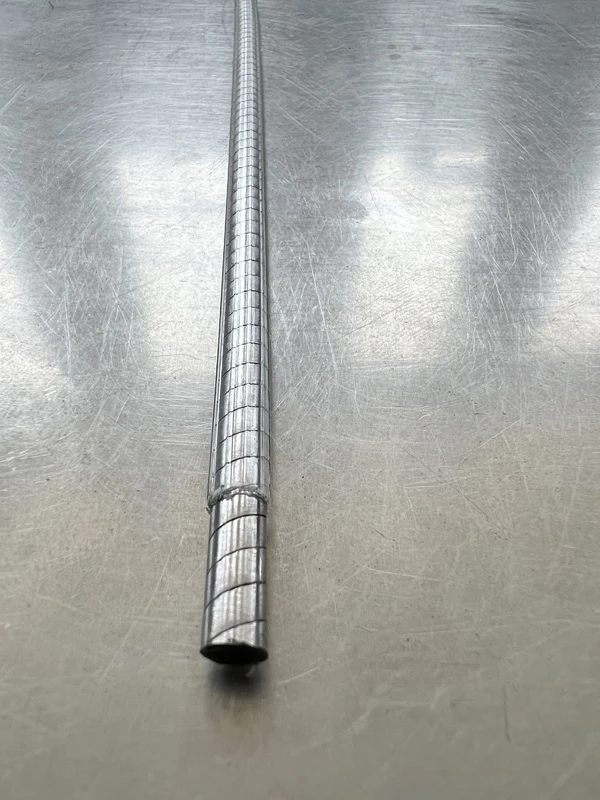The Benefits of Coated Steel Cable
Steel cables are widely used in various applications, but they can be susceptible to corrosion, especially in harsh environments. To enhance their durability and performance, they are coated with a protective layer. Coated steel cables offer numerous benefits, including:
- Enhanced Corrosion Resistance: The coating acts as a barrier between the steel and the corrosive elements, significantly extending the cable's lifespan.
- Improved Flexibility: Compared to bare steel cables, coated cables exhibit better flexibility, making them easier to handle and install.
- Reduced Lubrication Requirements: The coating provides lubrication, eliminating the need for frequent lubrication, which can attract dirt and debris.
- Aesthetic Appeal: The coating adds a protective and decorative finish to the cable, making it suitable for use in visible areas.
- Increased Load Capacity: Coated cables have a higher load-bearing capacity compared to bare cables due to the added layer of protection.
Types of Coated Steel Cables
Several types of coatings are used for steel cables, each offering unique properties. The most common types include:
- Galvanized Steel Cable: Galvanized steel cables are coated with a layer of zinc, providing excellent corrosion resistance in most environments.
- PVC Coated Steel Cable: PVC (polyvinyl chloride) coated cables offer high resistance to moisture, abrasion, and sunlight, making them suitable for outdoor applications.
- Nylon Coated Steel Cable: Nylon coated cables are lightweight and flexible, with good abrasion resistance and corrosion resistance in dry environments.
- Polyethylene Coated Steel Cable: Polyethylene coated cables have excellent resistance to chemicals and solvents, making them ideal for industrial applications.
- Neoprene Coated Steel Cable: Neoprene coated cables provide superior resistance to oil, ozone, and extreme temperatures, often used in automotive and marine applications.
Applications of Coated Steel Cables
Coated cable find application in a wide range of industries and settings, including:
- Construction: Coated steel cables are used in suspension bridges, cranes, and other structures requiring high strength and corrosion resistance.
- Marine: Coated steel cables are essential for mooring ships, fishing nets, and winch lines, where salt water exposure demands corrosion protection.
- Automotive: Coated steel cables are used in brake lines, throttle cables, and other control systems, where flexibility and durability are crucial.
- Aerospace: Coated steel cables are utilized in aircraft landing gear, control systems, and other components where weight and strength are critical.
- Industrial: Coated steel cables are employed in conveyor systems, material handling, and manufacturing equipment, where resistance to wear and corrosion is essential.
Factors to Consider When Choosing Coated Steel Cables
When selecting coated steel cables, several factors must be taken into account:
- Size and Strength: The diameter and construction of the cable must match the load-bearing requirements of the application.
- Coating Type: The coating material should be chosen based on the specific environmental conditions and application requirements.
- Flexibility: The cable's flexibility is crucial for ease of installation and operation.
- Lubrication: The amount of lubrication required for the cable will vary depending on the coating type and application.
- Cost: The price of coated steel cables varies depending on the size, coating material, and construction.
Comparison of Coated Steel Cables
The following table compares the different types of coated steel cables based on their key properties:
| Coating Type | Corrosion Resistance | Flexibility | Lubrication | Cost |
|---|---|---|---|---|
| Galvanized | Good | Moderate | Low | Moderate |
| PVC | Excellent | High | Low | Moderate |
| Nylon | Moderate | Good | Low | Low |
| Polyethylene | Excellent | Moderate | Low | High |
| Neoprene | Superior | Good | Low | High |
Applications of Galvanized Steel Cable
Galvanized steel cables are widely used in various applications, including:
- Construction: Suspension bridges, cranes, and other structures
- Marine: Mooring ships, fishing nets, and winch lines
- Automotive: Brake lines, throttle cables, and control systems
- Aerospace: Landing gear, control systems, and components
- Industrial: Conveyor systems, material handling, and manufacturing equipment
Benefits of Galvanized Steel Cable
Galvanized steel cables offer several advantages over bare steel cables:
- Enhanced Corrosion Resistance: The zinc coating protects the steel from oxidation and corrosion, extending its lifespan.
- Improved Flexibility: Galvanized cables are more flexible than bare steel cables, making them easier to handle and install.
- Reduced Maintenance: The zinc coating requires less maintenance compared to bare steel cables, reducing long-term costs.
- Increased Load Capacity: Galvanized cables have a higher load-bearing capacity than bare steel cables due to the added layer of protection.
- Cost-Effectiveness: Galvanized steel cables are a cost-effective option for applications requiring corrosion resistance and durability.
Disadvantages of Galvanized Steel Cable
Despite its benefits, galvanized steel cable has some disadvantages:
- Limited Corrosion Resistance: While galvanized steel cables offer good corrosion resistance, it can still be susceptible to corrosion in highly corrosive environments.
- Hydrogen Embrittlement: The hydrogen produced during the galvanizing process can make the cable more brittle in certain applications.
- Lower Strength: Galvanized cables have a slightly lower strength-to-weight ratio compared to bare steel cables due to the added weight of the zinc coating.
Applications of PVC Coated Steel Cable
PVC coated steel cables are utilized in a wide range of applications:
- Construction: Electrical wiring, security fencing, and cable trays
- Marine: Shipboard wiring, control cables, and winch lines
- Automotive: Wire harnesses, control cables, and brake lines
- Industrial: Conveyor systems, material handling, and automation equipment
- Consumer Products: Lighting, appliances, and power tools
Benefits of PVC Coated Steel Cable
PVC coated steel cables provide several benefits:
- Excellent Corrosion Resistance: The PVC coating protects the steel from corrosion, moisture, and chemicals.
- High Flexibility: PVC cables are highly flexible, making them easy to install in tight spaces.
- Insulation: The PVC coating provides electrical insulation, making the cables safe for use in electrical applications.
- Durability: PVC cables have a long lifespan, withstanding harsh environmental conditions.
- Cost-Effectiveness: PVC coated steel cables are a cost-effective solution for applications requiring corrosion resistance and flexibility.
Disadvantages of PVC Coated Steel Cable
PVC coated steel cables have some limitations:
- Temperature Limitations: PVC cables have a limited operating temperature range, typically between -40°C to +80°C.
- UV Degradation: PVC can degrade when exposed to ultraviolet light, which can reduce its lifespan.
- Fire Resistance: PVC is not fire-resistant and can release toxic fumes when burned.
Tensile Strength of Coated Steel Cables
The tensile strength of coated steel cables varies depending on the size, construction, and coating material. The following table provides a general estimate of the tensile strength of different types of coated steel cables:
| Coating Type | Tensile Strength (MPa) |
|---|---|
| Galvanized | 1,500-2,000 |
| PVC | 1,200-1,800 |
| Nylon | 1,000-1,500 |
| Polyethylene | 1,200-1,600 |
| Neoprene | 1,400-1,800 |
Conclusion
Coated steel cables offer superior corrosion resistance, flexibility, and durability compared to bare steel cables. By understanding the different types of coatings and their applications, you can choose the most suitable cable for your specific needs. Whether you require high corrosion resistance, excellent flexibility, or a combination of properties, coated steel cables provide a reliable and cost-effective solution for various applications.








